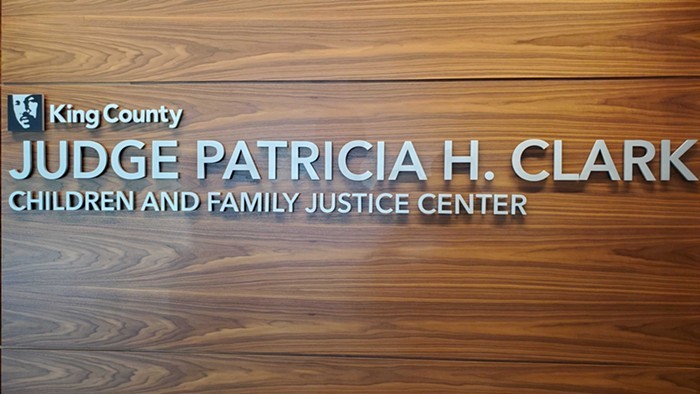On Tuesday afternoon, King County prosecutors stacked one tragedy on top of another as they gave notice of their intent to charge a 14-year-old child as an adult after alleging that he fatally shot a 17-year-old student at Ingraham High School last week. With the 14-year-old in pretrial detention until the next hearing, which is scheduled for January, there are now two families in north Seattle who will spend the holidays with empty seats at their dinner tables.
According to police interviews with witnesses and footage collected from the school's security cameras, prosecutors allege that the shooting followed a fight between the two boys and several friends. If not for the presence of a gun that was reported stolen to Snohomish County law enforcement more than a week before the shooting, the likely consequence would have been no more severe than detention. Instead, one child is dead and another is facing the potential of spending the majority of his life behind bars.
Once Again, a Gun Makes Everything Worse
It's worth acknowledging that the only information available in court records at this stage of the case comes from the police report that the prosecutors relied on to press charges against the 14-year-old. That report contains at least one possible factual error, a description of the alleged shooter as "16-17 years old," but the defense will not present their version of events until much later in the process, so this is all we have to go on for now.
According to the cops' interviews with witnesses and their review of footage from the school's security cameras, the 14-year-old and the 17-year-old got in a fight in a school bathroom about ten minutes prior to the shooting. Four other kids were also involved, and witnesses told police that the fight appeared to have started when one kid brought a gun to school and another decided he wanted to take it from the first child.
Following the fight, the 17-year-old reportedly taunted the 14-year-old by saying "you're not gonna bust it" as they passed each other in the hallway. Police say one witness who observed that interaction understood the comment as the older kid alleging that the younger child wouldn't have the nerve to use the gun in his backpack. According to that witness and the school's security camera footage, the 14-year-old then responded to the taunt by pulling out the gun and shooting the 17-year-old.
It's impossible to know for sure what would have happened if the same routine childhood bullying driven by our society's obsession with toxic masculinity went down without the presence of a firearm. But a gun was present, and now the families of both boys are grieving the loss of their sons; one dead, the other starting down a long path in a system designed to punish rather than to rehabilitate.
Prosecutors Plan to Charge the Child as an Adult
Prosecutors didn't argue for moving the 14-year-old's trial to adult court in today's hearing, but they provided notice to the court and the kid's lawyers that they intend to do so.
K.L. Shannon, a volunteer with Kids Are Kids, was in attendance at today's hearing. In an interview, she said that prosecutors shouldn't have that option. Her organization advocates for abolishing the authority for prosecutors to try children in adult court, which she said happens disproportionately to Black and brown kids caught up in the criminal punishment system.
According to the Campaign for Youth Justice, Shannon is right about that racial disparity. Two separate studies from 2016 show that Black kids make up just 14% of the youth population but comprise 35.5% of cases in juvenile court and 51.9% of the youth whose cases get transferred from juvenile court to adult court.
For Shannon, the reason for that discrepancy boils down to this country's long history of dehumanizing Black boys when they're accused of committing crimes. She compared the police report's description of the 14-year-old child ("Black male, afro, 5'8"-5'10", 16-17 years old, heavy build, wearing a dark grey hoodie") to the way prosecutors in the trial over Emmett Till's lynching described the 14-year-old as a "man" throughout the proceedings.
Citing a wealth of research on adolescent brain development, Shannon argued that no child should ever be tried as an adult. That research shows the parts of kids' brains that govern impulse control over actions like reacting to a taunt from an older kid take the longest to develop. Shannon said that the criminal punishment system already recognizes the legitimacy of that research by having a separate jail and court for kids, and that allowing prosecutors to contradict that logic by having the option to try kids as adults is another example of the system failing.
"These are children and two families who have lost someone," Shannon said. "The 17-year-old baby is gone, and we don't know what the future will look like for the 14-year-old."
For now, the 14-year-old's future rests with Judge Averil Rothrock, who will rule on the prosecutors' motion during a hearing in mid-February after a status conference on the case on January 18 of next year.




















